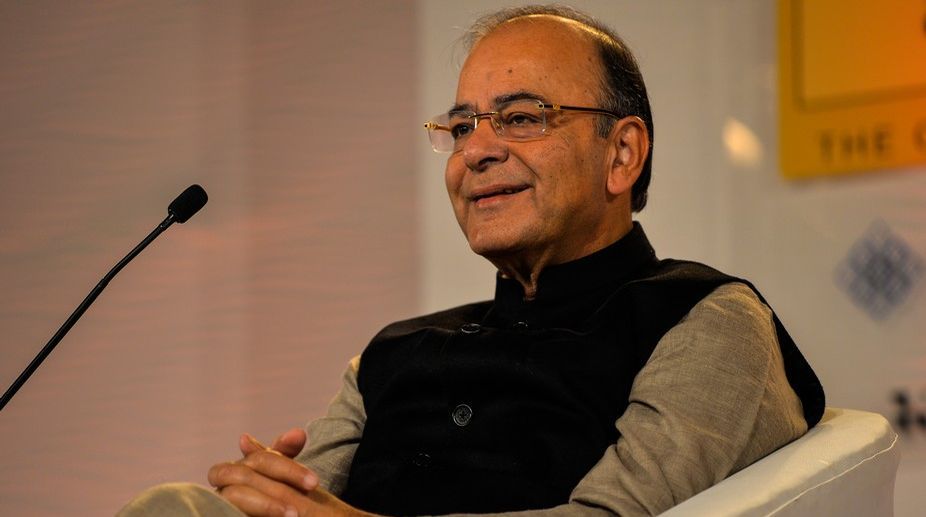India’s democratic dilemma
The fake news industry has grown by leaps and bounds under the tutelage of the BJP.

Arun Jaitley (Photo: Twitter)
Denying that demonetisation failed to achieve its objectives, Finance Minister Arun Jaitley on Wednesday said the measure had succeeded in reducing cash in the economy, increasing digitisation, expanding the tax base, checking black money and in moving towards integrating the informal economy with the formal one.
“The objective of demonetisation was that India is a high-cash economy and that scenario needs to be altered,” Jaitley told reporters here following the release of the Reserve Bank of India’s (RBI) annual report for the last fiscal giving the figures, for the first time, of demonetised notes returned to the system.
Advertisement
The RBI said on Wednesday that of the Rs.15.44 lakh crore of notes taken out of circulation by the demonetisation of Rs.500 and Rs.1,000 notes last November, Rs.15.28 lakh crore, or almost 99 per cent, had returned to the system by way of deposits by the public.
Advertisement
“The other objectives of demonetisation were to combat black money and expand the tax base. Post demonetisation, tariff tax base has increased substantially. Personal IT returns have increased by 25 per cent,” the Finance Minister said.
“Those dealing in cash currency have now been forced to deposit these in banks, the money has got identified with a particular owner,” he said.
“Expanding of the indirect tax base is evident from the results of the GST collections, which shows more and more transactions taking place within the system,” he added.
Jaitley on Tuesday said the government has collected Rs.92,283 crore as Goods and Services Tax (GST) revenue for the first month of its roll-out, exceeding the target, while 21.19 lakh taxpayers are yet to file returns. Thus, the July collections target have been met with only 64 per cent of compliance.
“The next object of demonetisation is that digitisation must expand, which climaxed during demonetisation and we are trying to sustain that momentum even after remonetisation is completed. Our aim was that the quantum of cash must come down,” Jaitley said.
He noted in this regard that RBI reports that the volume of cash transactions had reduced by 17 per cent post-demonetisation.
A Finance Ministry reaction to the RBI report said a significant portion of the scrapped notes deposited “could possibly be representing unexplained/black money”.
“Accordingly, ‘Operation Clean Money’ was launched on 31st January 2017. Scrutiny of about 18 lakh accounts, prima facie, did not appear to be in line with their tax profile. These were identified and have been approached through email/sms.”
Jaitley slammed his predecessor P Chidambaram for his criticism of the note ban, saying those who had not taken a single step against black money were trying to confuse the objectives of the exercise with the amount of currency that came back into the system.
The Finance Ministry said transactions of more than three lakh registered companies are being scrutinised, while one lakh companies have been “struck off the list”.
“The government has already identified more than 37,000 shell companies which were engaged in hiding black money and hawala transactions. The Income-tax Directorates of Investigation have identified more than 400 benami transactions up to May 23, 2017, and the market value of properties under attachment is more than Rs.600 crore,” it said.
“The integration of the informal with the formal economy was one of the principle objectives of demonetisation,” Jaitley said.
He also said that demonetisation had dealt a body blow to terrorist and Maoist financing that was evident from the situation on the ground in Chhattisgarh and Jammu and Kashmir
Advertisement